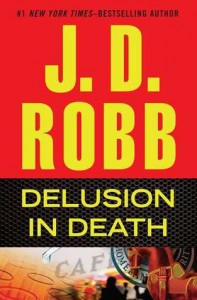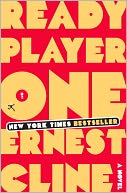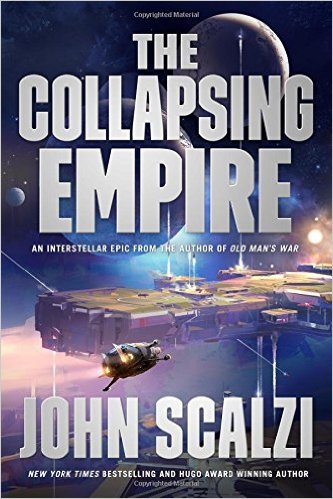 The Collapsing Empire Formats available: hardcover, paperback, ebook, audiobook
The Collapsing Empire Formats available: hardcover, paperback, ebook, audiobook Series: Interdependency #1
Pages: 334
on March 21st 2017
Purchasing Info: Author's Website, Publisher's Website, Amazon, Barnes & Noble, Kobo, Bookshop.org
Goodreads
The first novel of a new space-opera sequence set in an all-new
universe.Our universe is ruled by physics and faster than light travel is not possible -- until the discovery of The Flow, an extra-dimensional field we can access at certain points in space-time that transport us to other worlds, around other stars.
Humanity flows away from Earth, into space, and in time forgets our home world and creates a new empire, the Interdependency, whose ethos requires that no one human outpost can survive without the others. It’s a hedge against interstellar war -- and a system of control for the rulers of the empire.
The Flow is eternal -- but it is not static. Just as a river changes course, The Flow changes as well, cutting off worlds from the rest of humanity. When it’s discovered that The Flow is moving, possibly cutting off all human worlds from faster than light travel forever, three individuals -- a scientist, a starship captain and the Empress of the Interdependency -- are in a race against time to discover what, if anything, can be salvaged from an interstellar empire on the brink of collapse.
My Review:
My first thought upon finishing The Collapsing Empire was “Oh…My…GOD”
The second was that rolling your eyes while driving is a really bad idea, especially if you do it OFTEN. Actually I had that though much earlier in the book, when I was doing a LOT of eye rolling. The ending is far from an eye roll situation, but the advice still stands.
So i’m back to the Oh My God reaction, which I’m still hearing in Wil Wheaton’s voice as the reader of The Collapsing Empire. Which I listened to, pretty much everywhere, sometimes rolling my eyes, often smiling or even outright laughing, from the surprising beginning to the even more astonishing end.
Which isn’t really an end, because it’s obvious that this is just the beginning of a much bigger story, which I hope we get Real Soon Now, but don’t actually expect for a year or more.
So what was it?
The title both does and doesn’t give it away. The Empire, in this case the human empire that calls itself the Interdependency, is about to collapse. Not due to warfare or anything so prosaic, but because, well, science. The interstellar network that keeps the far-flung reaches of the Interdependency interdependent is on the verge of an unstoppable collapse.. So what we have at the moment is the story of the maneuvering and machinations as what passes for the powers that be, or that hope to be the powers that become, jockey for position (and survival) in the suddenly onrushing future.
And humans being humans, while some panic there are a whole lot of people who remain so invested in the status quo that they are unwilling to act because any actions upset their positions now, and they hope, very much against hope, that the predictions are wrong. Not because they really believe in their heart of hearts that they ARE wrong, but because they want them to be wrong so very badly.
Any resemblance between the Interdependency and 21st century America is probably intended – but agreeing or disagreeing with that statement doesn’t change the sheer rushing “WOW” of the story.
That story of the empire that’s about to collapse is primarily told through the eyes of four very, very different people (not that the side characters aren’t themselves quite fascinating). But as things wind up, and as the empire begins to wind down, we get our view of the impending fall mostly from these four, or people who surround them.
The first is Ghreni Nohamapeton, the most frequent source of my eye-rolling. Ghreni is a slippery manipulative little bastard, but he is about to be hoist on his own petard. Or possibly not. He thinks he knows what’s coming, and of course, he doesn’t. Or does he?
Kiva Lagos may possibly be the most profane character it has ever been my pleasure to encounter, in literature or out of it. And her constant, continuous cursing sounds a bit much in an audiobook, but perfectly fits her character. Kiva is also manipulative as hell, and mercenary into the bargain. But somewhere between the hells, damns and f-bombs, there’s a heart. Or at least the desire to one-up Ghreni that provides some of the same functionality.
Marce Claremont is about to be the bearer of very bad tidings – if he can survive being the chew toy between Ghreni and Kiva long enough to deliver his message. And even though he knows that the delivery of it means that he really, really can’t go home again. Ever.
And finally we have Cardenia Wu, the recent and very reluctant Emperox of the Interdependency. A woman who is about to experience the very extreme end of that old saying, “be careful what you wish for, because you might get it.” As a great man once said, “Some gifts come at just too high a price.” And that’s true whether you have to dance with the devil to get them, or just roll dice with fate.
Escape Rating A: I listened to this, and also have the ebook. I expected to switch between, but in the end just couldn’t tear myself away from Wil Wheaton’s marvelous reading. He does a terrific job with all of the voices, and adds even more fun to a book that was already fantastic.
But I need that ebook to look up all the names. It seems as if none of them are spelled quite the way they sound. And the ship’s names are an exercise in absurdity from beginning to end. (This aspect may be an homage to the late Iain Banks’ Culture series). But the first ship we meet is the “Tell Me Another One” which is this reader’s general response to Scalzi’s work. I want him to tell me another one, as soon as possible. But also, and as usual, everyone’s leg is getting pulled more than a bit, and not from the same direction.
Lots of things in this story made me smile, quite often ruefully. The scenario is painful, and as this book closes we know that the situation in general is only going to get worse, and possibly not get better. But for the individuals, life is going on. And the characters exhibit all of the sarcasm that this author is known for.
Some of it has the ring of gallows humor to it, and that’s also right. No one is likely to come out of this unscathed by the end, and that’s obvious to the reader from the beginning, even if not to the characters.
This is also a story of merchant empires and political skullduggery. And yes, there is plenty of commentary on that aspect to chew on for a long time, quite possibly until the next book in the series. Like so much of Scalzi’s work, The Collapsing Empire makes the reader laugh, and it makes the reader think, quite often at the same time.
Ghreni and Kiva both represent different ways in which the current systems of the Interdependency have been taken to their extreme limit. But Marce and Cardenia are the characters that we sympathize with. They are both operating against impossible odds, and we like them and want them to succeed. Whether they will or not is left to the subsequent books in this series.
And I really, really, really can’t wait to see what happens next.
~~~~~~ GIVEAWAY ~~~~~~
Because this is part of my annual Blogo-Birthday celebration, I want to share the love. And the books. John Scalzi is one of my favorite authors, and I hope he’ll become one of yours too. To that end, I’m giving away one copy of any of Scalzi’s works, (up to $20) to one lucky commenter on this post. This giveaway includes The Collapsing Empire, but if you haven’t yet had the pleasure of Scalzi, Old Man’s War is probably the best place to begin.

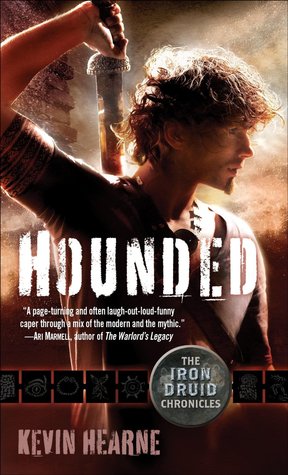 Hounded (The Iron Druid Chronicles, #1) by
Hounded (The Iron Druid Chronicles, #1) by 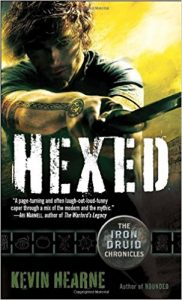 Hexed is up next. Atticus doesn’t trust witches. And there’s a good reason. Again. Fantastic!
Hexed is up next. Atticus doesn’t trust witches. And there’s a good reason. Again. Fantastic! Murder on the Ballarat Train (Miss Fisher's Murder Mystery #3) by
Murder on the Ballarat Train (Miss Fisher's Murder Mystery #3) by  I enjoyed this method of “reading” Phryne’s story just as much as I did reading it. I will, however, make one final note about the audio performance. In any audiobook where a single narrator attempts to voice multiple characters, some characters work better than others. That problem is made more difficult in the case of Phryne, as those of us who have watched the TV show already have a fixed idea of what these characters are supposed to sound like. The narrator of Murder at the Ballarat Train did an excellent job portraying Phryne, and surprisingly a fairly good job of making the male voices sound at least OK. But for some reason my ear kept telling me that Dot’s voice was completely off.
I enjoyed this method of “reading” Phryne’s story just as much as I did reading it. I will, however, make one final note about the audio performance. In any audiobook where a single narrator attempts to voice multiple characters, some characters work better than others. That problem is made more difficult in the case of Phryne, as those of us who have watched the TV show already have a fixed idea of what these characters are supposed to sound like. The narrator of Murder at the Ballarat Train did an excellent job portraying Phryne, and surprisingly a fairly good job of making the male voices sound at least OK. But for some reason my ear kept telling me that Dot’s voice was completely off.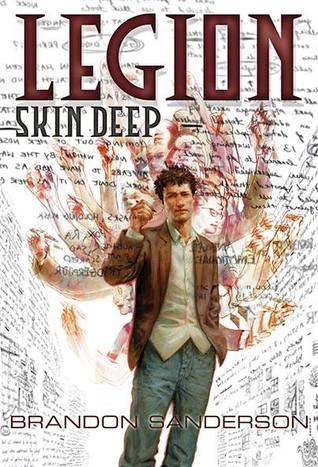 Skin Deep (Legion #2) Formats available: hardcover, ebook, audiobook
Skin Deep (Legion #2) Formats available: hardcover, ebook, audiobook 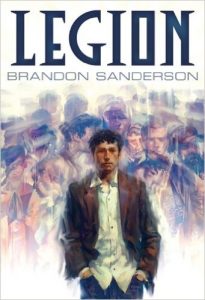 Skin Deep is the sequel to
Skin Deep is the sequel to 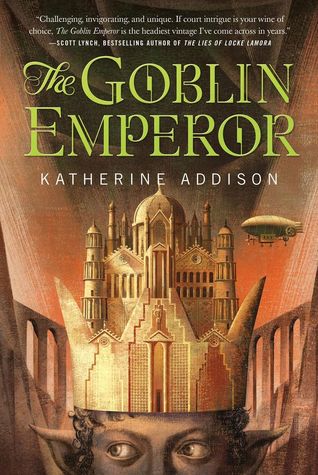 Format read: audiobook purchased from Audible; ebook provided by the publisher via Edelweiss
Format read: audiobook purchased from Audible; ebook provided by the publisher via Edelweiss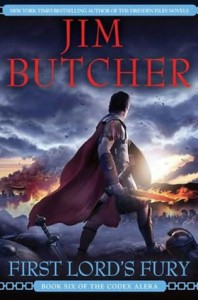
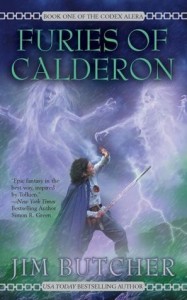
![STSmall_thumb[2]_thumb](https://www.readingreality.net/wp-content/uploads/2012/09/STSmall_thumb2_thumb1-300x170.png)
